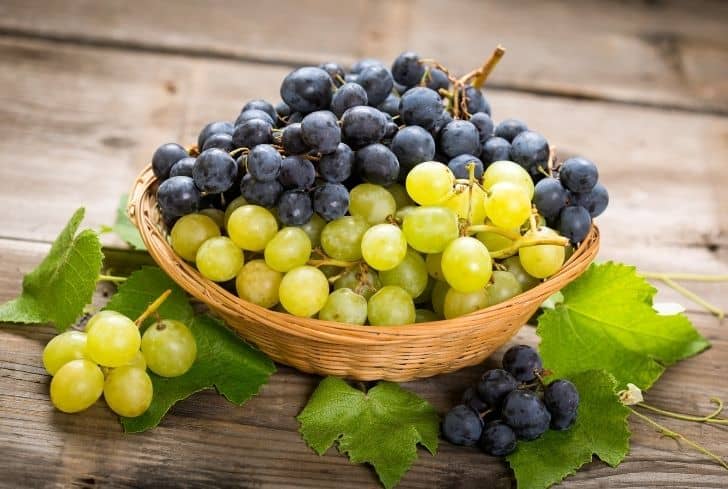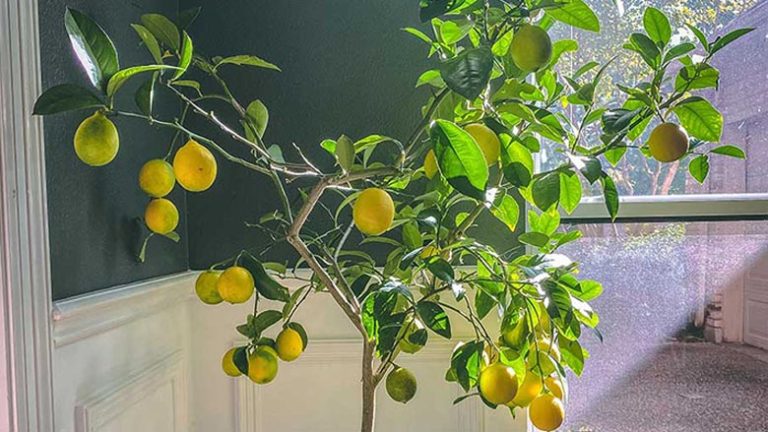[Explained] Can You Grow Artichokes in Michigan
Yes, you can grow artichokes in Michigan. Artichokes thrive in cooler climates and can withstand frost.
Michigan’s climate provides suitable conditions for growing artichokes. Artichokes (Cynara scolymus) are popular perennial plants that produce edible flower buds. While commonly associated with Mediterranean climates, artichokes can actually be successfully grown in Michigan. With a little planning and care, you can enjoy fresh artichokes from your own garden in the great lakes state.
Michigan’s climate, characterized by cool summers and cold winters, is well-suited for artichoke cultivation. These plants prefer cool temperatures and can withstand light frost. They typically thrive in full sun but can tolerate some shade. Soil preparation is essential, ensuring it is well-drained and fertile.
Regular watering is important, but be careful not to overwater as artichokes prefer slightly dry conditions. Harvesting the flower buds before they open is key to enjoying their tender and flavorful hearts. So, if you’re a Michigan resident looking to grow artichokes, you’re in luck!
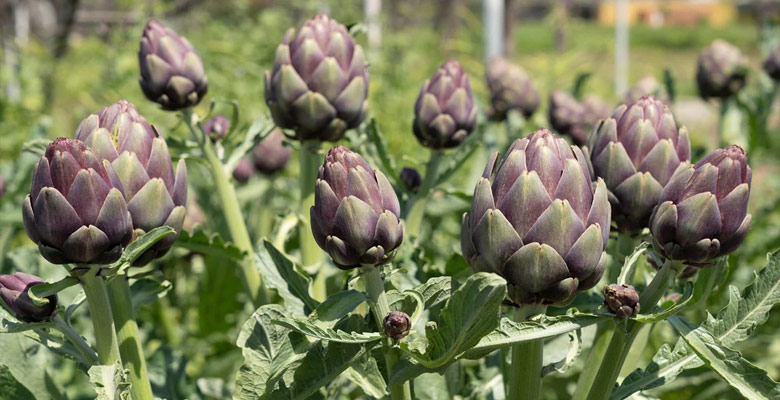
Climate Of Michigan For Artichoke Cultivation
Michigan is known for its diverse climate, which can be challenging for growing certain crops. If you’re considering growing artichokes in Michigan, it’s important to understand the unique climate conditions and how they can affect the growth of this delicious vegetable.
In this section, we will provide an overview of Michigan’s climate, explore how it impacts artichoke growth, and offer tips for managing climate challenges.
Overview Of Michigan’S Climate
- Michigan has a humid continental climate, characterized by hot summers and cold winters.
- The state experiences four distinct seasons, with a wide temperature range throughout the year.
- Winters in Michigan can be particularly harsh, with temperatures dropping below freezing and heavy snowfall.
- The climate varies across different regions of the state, with the western and coastal areas receiving more precipitation compared to the eastern part.
How It Affects Artichoke Growth
- Artichokes are native to Mediterranean climates and thrive in mild and temperate conditions.
- Michigan’s climate can pose challenges for artichoke growth due to its cold winters and fluctuating temperatures.
- The cold temperatures can damage the roots and foliage of artichoke plants, leading to stunted growth or even plant death.
- Frost and snowfall can also cause additional stress to the plants, making it difficult for them to establish and grow.
Tips For Managing The Unique Climate Challenges
Select the right varieties: Choose artichoke varieties that are more cold-tolerant and adaptable to Michigan’s climate. Look for varieties such as ‘green globe’ or ‘imperial star’, which are known to withstand colder temperatures.
Start indoors: To give your artichoke plants a head start, consider starting them indoors in pots or trays. This will allow you to control the temperature and provide optimal growing conditions until the weather becomes more favorable.
Provide protection: Shield artichoke plants from harsh winter conditions by using row covers or tunnels. These protective structures can help trap heat and create a microclimate that is more suitable for artichoke growth.
Mulch and insulate: Apply a layer of mulch around the base of the plants to insulate the soil and protect the roots from extreme temperature fluctuations. This will help maintain a more stable environment for the artichoke plants.
Extend the season: Consider using season-extending techniques like using cold frames or hoop houses to extend the growing season. These structures can protect the plants from frost and allow you to enjoy artichokes for a longer period.
Artichoke Varieties That Thrive In Michigan
Michigan’s climate may not be ideal for cultivating artichokes, but with careful selection and proper care, it is still possible to grow this delicious vegetable in your own backyard. When choosing artichoke varieties that thrive in Michigan, there are a few key characteristics to consider.
Let’s explore these characteristics and the best practices for selecting the right artichoke variety.
Characteristics Of Artichoke Varieties Suitable For Michigan
Here are some important factors to keep in mind when selecting artichoke varieties that are well-suited to Michigan’s climate:
- Cold hardiness: Michigan experiences harsh winters, so it’s crucial to choose artichoke varieties that can withstand freezing temperatures. Look for varieties that are known for their cold hardiness, such as ‘green globe improved’ and ‘violetto’.
- Early maturity: Due to Michigan’s relatively short growing season, it’s advisable to select artichoke varieties that reach maturity quickly. Opt for early-maturing varieties like ‘imperial star’ and ‘violet de Provence that will have ample time to produce a good harvest before the first frost.
- Disease resistance: Artichoke plants are prone to certain diseases, such as downy mildew and fusarium wilt. To minimize the risk of these diseases affecting your crop, choose varieties that have demonstrated resistance. Varieties like ‘green globe’ and ‘big heart’ are known for their disease resistance.
- Compact growth habit: Given the limited space in many Michigan gardens, selecting artichoke varieties with a compact growth habit can be advantageous. Look for varieties that produce compact plants with shorter stems and smaller overall sizes. ‘Emerald’ and ‘Omaha’ are examples of varieties with a compact growth habit.
- Tolerant to varying soil conditions: Michigan’s soil can vary greatly across the state, so it’s beneficial to choose artichoke varieties that can adapt to different soil types. Consider varieties like ‘purple of romagna’ and ‘tavor’ that have been reported to tolerate various soil conditions.
Best Practices For Selecting The Right Artichoke Variety
When it comes to selecting the right artichoke variety for your Michigan garden, here are a few best practices to follow:
- Research and consult: Before making a decision, research different artichoke varieties suitable for Michigan’s climate. Seek advice from experienced gardeners or consult with local nurseries to gain valuable insights.
- Consider your preferences: Take your personal preferences into account. Are you looking for a particular taste, color, or size? Different artichoke varieties offer unique flavors and appearances, so choose one that aligns with your preferences.
- Review performance records: Look for artichoke varieties with positive performance records in Michigan. Online forums and gardening communities can be excellent resources for finding firsthand experiences from fellow Michigan gardeners.
- Start with transplants: Given the relatively short growing season in Michigan, it’s advantageous to start with transplants rather than growing artichokes from seeds. This will allow you to get a head start and increase the chances of a successful harvest.
- Provide optimal growing conditions: Artichokes thrive in well-drained soil and full sun. Ensure your chosen variety receives adequate sunlight and provides regular watering to keep the soil consistently moist.
Preparing The Soil And Planting Artichokes In Michigan
Michigan’s unique climate and soil conditions can pose challenges when it comes to growing artichokes. However, with proper soil preparation and planting techniques, it is possible to cultivate these delicious and nutritious plants in your backyard.
In this section, we will discuss the key steps for preparing the soil and planting artichokes in Michigan, along with the specific soil requirements for optimal growth.
Soil Requirements For Artichokes
Artichokes thrive in well-draining soil, rich in organic matter. Here are the essential soil requirements for successful artichoke cultivation in Michigan:
- Ph level: Artichokes prefer slightly acidic to neutral soil, with a pH range of 6.5 to 7.0. Conduct a soil test to determine the pH level and make necessary amendments if needed.
- Texture: The soil should be loamy with good drainage. Avoid heavy clay soils that are prone to waterlogging, as they can lead to root rot.
- Organic matter: Incorporate plenty of organic matter, such as compost or well-rotted manure, into the soil before planting. This helps improve soil structure, nutrient availability, and moisture retention.
Steps For Soil Preparation
Proper soil preparation sets the foundation for healthy artichoke plants. Follow these steps to prepare your soil for planting:
- Clear the area: Remove any weeds, rocks, or debris from the planting area. This creates a clean and weed-free space for your artichokes to grow.
- Loosen the soil: Break up compacted soil using a garden fork or tiller. This improves aeration, water infiltration, and root penetration.
- Add organic matter: Spread a layer of compost or well-rotted manure over the planting area. Mix it into the top 6-8 inches of soil using a garden rake or hoe.
- Level the soil: Smooth out the soil surface to create an even bed for planting. This helps with irrigation and prevents water pooling.
- Mulch the area: Apply a layer of organic mulch, such as straw or wood chips, around the base of the artichoke plants. Mulching conserves moisture, suppresses weeds, and regulates soil temperature.
Tips For Planting Artichokes In Michigan’S Specific Conditions:
Successfully planting artichokes in Michigan requires some additional considerations due to the region’s climate and growing season. Keep these tips in mind:
- Choose the right variety: Select artichoke varieties that are suitable for cooler climates and have shorter maturity periods. Some recommended varieties for Michigan include ‘green globe’ and ‘imperial star.’
- Start indoors: To give your artichokes a head start, begin by sowing seeds indoors 8-10 weeks before the last frost. Transplant the seedlings outdoors once the soil has warmed up and there is no risk of frost.
- Provide protection: Artichokes can be sensitive to frost and cold temperatures. Consider using protective measures, such as row covers, during chilly nights or early spring.
- Adequate spacing: Allow sufficient space between artichoke plants, typically 3-4 feet apart, to ensure good air circulation and room for growth.
- Watering and drainage: Maintain consistent moisture levels in the soil by watering deeply and regularly. However, ensure proper drainage to prevent waterlogged conditions, which can harm the plants.
- Fertilize properly: Apply a balanced fertilizer with higher nitrogen content at planting time and throughout the growing season. Follow the package instructions for proper dosage.
- Monitor pests and diseases: Keep an eye out for common artichoke pests such as aphids, slugs, and snails. Additionally, be vigilant for diseases like powdery mildew and gray mold. Promptly address any issues to protect your plants.
Nurturing And Caring For Artichoke Plants In Michigan
Artichokes are not a common sight in Michigan gardens, but with the right care and attention, it is possible to grow these beautiful and delicious plants in the Great Lakes state. In this section, we will explore the key aspects of nurturing and caring for artichoke plants in Michigan.
From watering needs to fertilization recommendations and protecting against pests and diseases, we’ve got you covered.
Watering Needs For Artichoke Plants In Michigan:
- Artichoke plants require regular watering, especially during dry periods. It is important to keep the soil consistently moist, but not saturated.
- The general rule of thumb is to provide an inch of water per week. However, this may vary depending on soil type, weather conditions, and the size of the plant.
- Water deeply, allowing the water to reach the root zone. This encourages the development of a strong root system.
- Mulching around the plants can help retain moisture and prevent weed growth, ensuring optimal water absorption.
Fertilization Recommendations For Artichokes In Michigan:
- Artichoke plants benefit from regular fertilization to support healthy growth and abundant yields.
- Before planting, incorporate organic matter such as compost or well-rotted manure into the soil to provide essential nutrients.
- Apply a balanced fertilizer, such as a 10-10-10 or 14-14-14, in early spring as the plants emerge. Follow the package instructions for application rates.
- Repeat the fertilizer application every four to six weeks throughout the growing season to maintain nutrient levels.
- Avoid over-fertilization, as it can lead to excessive foliage growth at the expense of artichoke production.
Protecting Artichokes From Michigan’S Pests And Diseases:
- Artichokes in Michigan may face challenges from various pests and diseases, but with proper care, you can minimize these risks.
- Aphids and slugs are common pests that can damage artichoke plants. Control aphids by spraying a strong stream of water or using insecticidal soap. Protect against slugs with slug traps or by applying diatomaceous earth around the plants.
- Watch out for diseases such as powdery mildew and rust. Avoid overhead watering and provide adequate spacing between plants to promote airflow and reduce humidity. If necessary, apply a fungicide recommended for these diseases.
- Regularly inspect your artichoke plants for signs of pests or diseases. Early detection and intervention can prevent serious damage.
Harvesting And Storing Artichokes In Michigan
Growing artichokes in Michigan is possible, but it’s important to know when and how to harvest them. Harvesting artichokes at the right time ensures optimal taste and tenderness. Storing them correctly helps preserve their freshness for longer.
In this section, we’ll explore the indicators of artichoke readiness for harvest, harvesting techniques for Michigan-grown artichokes, and proper storage methods for preserving their freshness.
Indicators Of Artichoke Readiness For Harvest
Before harvesting your artichokes in Michigan, it’s essential to look for certain signs that indicate they are ready to be picked. Here are some key indicators to keep in mind:
- Size and appearance: Fully mature artichokes are generally between 3 and 5 inches in diameter. They should have tightly closed, compact bracts and a vibrant green color. Avoid harvesting ones that have turned brown or have open, loose bracts.
- Squeezability: Gently squeeze the artichoke bud. If it feels firm, it’s not yet ready for harvest. Wait until the bud softens slightly, indicating that the choke inside has developed.
- Petals: The petals of a mature artichoke will be tightly closed. If the petals begin to open or spread out, it’s a sign that the artichoke is past its prime and should be harvested soon.
Harvesting Techniques For Michigan-Grown Artichokes
When it comes to harvesting artichokes in Michigan, following the proper techniques ensures a successful and bountiful harvest. Here are some key points to keep in mind:
- Timing: Harvest artichokes when they are fully mature but still tight and tender. This usually occurs in late summer or early fall, depending on the specific variety you are growing.
- Tools: Use a sharp knife or pruning shears to cut the artichokes from the plant. Ensure that your tools are clean to minimize the risk of disease.
- Cutting method: Cut the artichokes with a clean, angled cut, leaving a short stem attached. Removing too much of the stem can increase the risk of spoilage during storage.
- Selective harvesting: Harvest the mature artichokes first, leaving the smaller ones on the plant to continue growing. This allows them to fully develop before harvesting them later.
Proper Storage Methods For Preserving Freshness
To enjoy the freshness of your harvested artichokes for as long as possible, it’s essential to store them properly. Follow these guidelines for optimal storage:
- Cleaning: Before storing, remove any excess dirt or debris from the harvested artichokes. Gently rinse them with water, being careful not to bruise or damage the bracts.
- Refrigeration: Place the cleaned artichokes in a perforated plastic bag to allow for air circulation and prevent moisture buildup. Store them in the refrigerator’s vegetable crisper drawer, where temperatures are typically around 32°f to 40°f (0°c to 4°c).
- Humidity control: Maintain high humidity levels by lightly misting the artichokes with water before placing them in the refrigerator. This helps prevent them from drying out.
- Storage duration: Freshly harvested artichokes can typically be stored for up to one week in the refrigerator. However, it’s best to enjoy them as soon as possible for the ultimate flavor and tenderness.
Cooking And Enjoying Michigan-Grown Artichokes
Artichokes are versatile and flavorful ingredients that can be enjoyed in a variety of delicious recipes. If you’re lucky enough to have access to locally grown artichokes in Michigan, you’re in for a treat.
Here are some mouthwatering recipes that make the most of these fresh, Michigan-grown artichokes:
- Spinach and artichoke dip: Combine sautéed artichoke hearts, spinach, cream cheese, sour cream, and parmesan for a creamy and indulgent appetizer.
- Grilled artichokes: Brush fresh artichokes with olive oil, sprinkle with salt and pepper, and grill until tender. Serve with a dipping sauce of your choice for a smoky and flavorful side dish.
- Artichoke and chicken skillet: Sauté artichoke hearts, chicken, garlic, and onions in a skillet until cooked through. Serve over pasta or rice for a hearty and satisfying meal.
- Stuffed artichokes: Stuff cooked artichokes with a mixture of breadcrumbs, garlic, parmesan, and herbs, then bake until golden and crispy. This classic Italian dish is sure to impress.
Pairing Artichokes With Other Local Ingredients
One of the joys of cooking with locally grown ingredients is the ability to create dishes that highlight the flavors of the region. When it comes to pairing Michigan-grown artichokes with other local ingredients, here are some winning combinations:
- Michigan cherry and artichoke salad: Toss fresh artichoke hearts, tart Michigan cherries, mixed greens, goat cheese, and a simple vinaigrette for a refreshing summer salad.
- Artichoke and asparagus risotto: Combine tender artichoke hearts, crisp asparagus, arborio rice, and parmesan cheese for a creamy and satisfying risotto dish.
- Artichoke and whitefish bake: Layer artichoke hearts, locally caught whitefish, tomatoes, and herbs in a baking dish, then bake until the fish is flaky and the flavors have melded together.
Tips For Enjoying The Unique Flavors Of Michigan-Grown Artichokes
Michigan-grown artichokes offer a unique flavor that is worth savoring. Here are some tips to enhance your enjoyment of these delicious vegetables:
- Choose fresh and firm artichokes: Look for artichokes with tight leaves and vibrant green color. They should feel heavy for their size, indicating freshness.
- Prepare them properly: Trim the prickly ends of the leaves and remove the tough outer leaves before cooking. Steam or boil until tender, then remove the fuzzy choke before eating.
- Experiment with different cooking methods: Besides the traditional boiling or steaming methods, try grilling, roasting, or even frying artichokes to bring out different flavors and textures.
- Enhance the flavors with herbs and seasonings: Artichokes pair well with garlic, lemon, parsley, basil, and thyme. Don’t be afraid to experiment with different herbs and spices to elevate the taste.
- Enjoy artichokes in a variety of dishes: From appetizers and salads to main courses and side dishes, there are countless ways to incorporate artichokes into your meals. Get creative and explore new recipes.
Artichoke Growing Challenges And Solutions In Michigan
Michigan’s climate may not seem ideal for growing artichokes, but with proper care and attention, it is possible to cultivate these delicious vegetables. However, there are certain challenges that artichoke growers in Michigan may face. In this section, we will explore these challenges and provide useful tips to troubleshoot them.
Additionally, we will share some valuable resources and support available for Michigan artichoke cultivation.
Common Challenges Faced By Artichoke Growers In Michigan
Artichoke cultivation in Michigan can be challenging due to the state’s relatively short growing season and variable weather conditions. Some common challenges that artichoke growers may encounter include:
- Short growing season: Michigan’s cold climate can limit the growth and yield of artichoke plants, as they thrive in warmer temperatures.
- Frost damage: Artichoke plants are susceptible to frost damage, especially during the colder months. Frost can stunt growth or even kill the plants.
- Heavy rainfall: Excessive rainfall can lead to waterlogged soil, which can cause root rot and other fungal diseases in artichoke plants.
- Pests and diseases: Artichoke plants are prone to pests such as aphids, snails, and slugs. They may also be affected by diseases such as powdery mildew and botrytis.
Troubleshooting Tips For Overcoming Obstacles
To overcome these challenges and ensure successful artichoke cultivation in Michigan, here are some troubleshooting tips to keep in mind:
- Start seeds indoors: Begin the germination process indoors before the last frost date to extend the growing season and give the plants a head start.
- Use protective covers: During the colder months, use protective covers like row covers or cloches to shield the plants from frost and provide insulation.
- Prepare the soil: Improve drainage by adding organic matter such as compost to the soil. This will prevent waterlogging and promote healthier root development.
- Monitor pests and diseases: Regularly inspect the plants for signs of pests or diseases. Use organic pest control methods, such as introducing beneficial insects or using natural insecticides, to protect the plants.
- Consider container gardening: If the growing season is particularly short, consider growing artichokes in containers that can be moved indoors during colder periods.
Resources And Additional Support For Michigan Artichoke Cultivation
Michigan gardeners interested in growing artichokes can find additional support from various resources. Here are some valuable sources of information:
- Michigan state university extension: Offers educational resources and workshops on vegetable gardening, including information specific to Michigan’s growing conditions.
- Local gardening communities: Connect with local gardening clubs or online forums, where experienced growers can provide guidance and tips based on their own experiences in Michigan.
- Seed catalogs and nurseries: Look for seed catalogs or nurseries that specialize in cold-hardy vegetables and offer artichoke varieties suitable for Michigan’s climate.
- Garden centers: Visit local garden centers for advice on growing artichokes and to purchase necessary supplies.
- Online research: Conduct online research to find articles, blogs, and videos that provide insights and tips on growing artichokes in Michigan.
Frequently Asked Questions and Answers
Can Artichokes Be Grown In Michigan?
Yes, artichokes can be grown in Michigan. However, they are best suited for planting in the southern parts of the state where there is a longer growing season. It is important to choose cold-hardy varieties and provide them with proper care and protection during the winter months.
What Is The Best Time To Plant Artichokes In Michigan?
The best time to plant artichokes in Michigan is in early spring after the last frost has passed. This allows the plants to establish themselves before the summer heat kicks in. It is also recommended to start the seeds indoors 8-12 weeks before the last expected frost date.
What Growing Conditions Do Artichokes Require In Michigan?
Artichokes require well-draining soil, full sun, and a long growing season to thrive in Michigan. They prefer soil with a ph level between 6. 5 and 8. 0. Adding compost and organic matter to the soil can improve drainage and nutrient content, promoting healthy growth.
Can Artichokes Withstand Michigan Winters?
Artichokes are not fully winter-hardy in Michigan and require protection from freezing temperatures. Applying a thick layer of mulch around the base of the plants and covering them with a frost blanket or burlap can help insulate them during the winter months.
How Long Does It Take For Artichokes To Mature In Michigan?
Artichokes typically take around 85-100 days to mature in Michigan, depending on the variety and growing conditions. It is important to harvest them before the flowers bloom to ensure tender and flavorful buds. Regular harvesting encourages the plants to produce more buds throughout the growing season.
How Can I Harvest And Store Artichokes In Michigan?
To harvest artichokes, wait until the buds have reached a desired size, usually 3-5 inches in diameter. Use a sharp knife to cut the buds off, leaving a short stem. To store them, place the harvested artichokes in a perforated plastic bag and store them in the refrigerator.
Conclusion
Growing artichokes in Michigan is not only possible but also a rewarding experience for gardeners. Despite the challenges posed by the state’s climate, with proper care and attention, artichokes can thrive in Michigan’s growing zones. By selecting the right variety, providing consistent watering and well-drained soil, as well as protecting plants during extreme temperatures, gardeners can enjoy a bountiful harvest of delicious artichokes.
The versatility of artichokes in various recipes and their nutritional value make them worth the effort for any gardening enthusiast. So if you’re a Michigan gardener looking to add some diversity to your vegetable garden, don’t hesitate to give artichokes a try.
With the right knowledge and techniques, you’ll be able to successfully grow and enjoy this unique and flavorful vegetable in your own backyard.
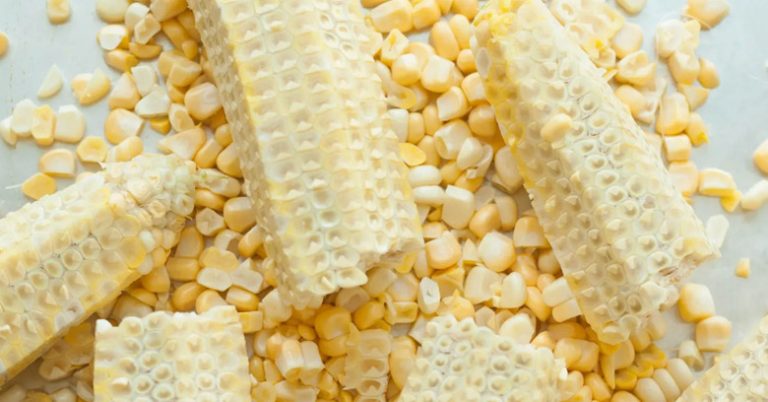
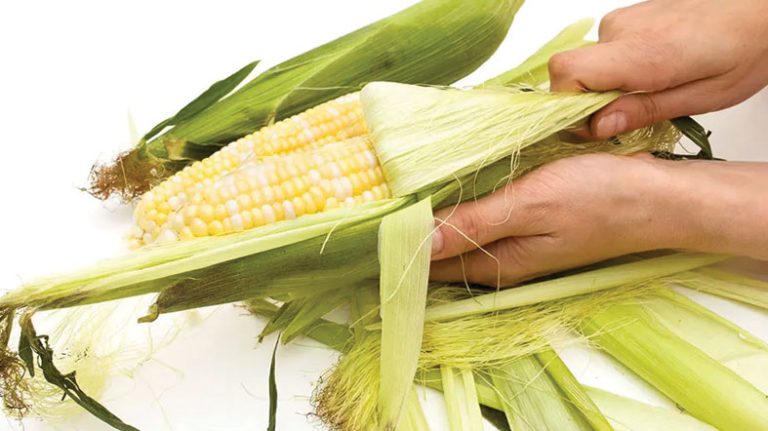
![Why Is My Sunflower Drooping [Secrets Behind Sunflower Drooping]](https://gardensuggest.com/wp-content/uploads/2023/09/Why-Is-My-Sunflower-Drooping-768x432.webp)
